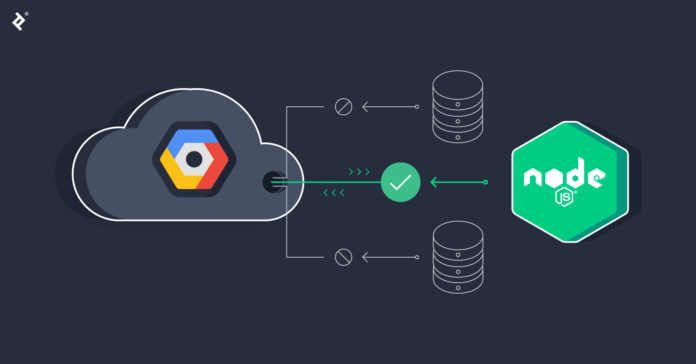The fact is that in the web development era today Node.js has become a line of sight for the development of modern scalable and fast applications. The architecture of Node.js is nonblocking as well as asynchronous. It enables the creation of robust backend services that can work simultaneously with a large volume of connections. Hence, it is a suitable tool for real-time application development.
In terms of deployment, Google Cloud Platform (GCP) wins the day as it provides a safe, as well as advanced environment, for Node.js applications to fit in and work without any issues. In this article, we will show you the deployment and management of your Node.js applications hosted in the Google Cloud Platform, and the aim is to provide a user-friendly instruction that can be followed even by newbies.
Understanding GCP and Its Benefits for Node.js Deployment
Google Cloud Platform offers a suite of cloud computing services that run on the same infrastructure that Google uses internally for its end-user products. The GCP offers a wide range of services to the developers of Node.js who want to scale their apps the most efficiently. This, of course, includes the hosting and the computing as well as what Node.js developers need in terms of storage and database management.
Incorporation of GCP into your Node.js implementation allows for surfacing degrees of improvement in performance, dependability, and scalability. To fully harness these benefits, businesses should consider the option to hire Node.js developers who are skilled in cloud-based deployment and management, ensuring that applications are not only well-developed but also optimally deployed and managed in the cloud environment.
Setting Up Your Node.js Project on GCP
Getting your Node.js application up and running on GCP involves a few essential steps. Initially, you need to set up a Google Cloud account and create a new project. Once your project is ready, you can utilize Google Cloud’s App Engine, a fully managed platform that allows you to deploy web applications without the need to manage the underlying infrastructure.
Here’s a simplified step-by-step guide to deploying your Node.js application:
Install the Google Cloud SDK
This toolset allows you to manage your GCP resources and applications from the command line.
Prepare Your Node.js Application
Make sure your application is production-ready and follows best practices for cloud deployment.
Deploy Your Application to App Engine
Using the cloud command, deploy your Node.js application to the App Engine, specifying your project and region.
Managing Your Node.js Application in GCP
Once your application is deployed, GCP offers various tools and services to manage and monitor its performance. Cloud Monitoring and Cloud Logging are essential tools that provide insights into your application’s health and traffic patterns.
Additionally, GCP’s Cloud SQL and Cloud Firestore offer scalable database solutions that can be easily integrated into your Node.js application for robust data management.
To ensure that your application remains efficient and secure, regularly update your Node.js dependencies and monitor your GCP resources for any irregular activities. GCP also offers automated scaling, ensuring that your application can handle spikes in traffic without any manual intervention.
Best Practices for Node.js Deployment on GCP
To maximize the efficiency and reliability of your Node.js application on GCP, consider the following best practices:
Continuous Integration/Continuous Deployment (CI/CD)
Implement CI/CD pipelines using Cloud Build and GitHub Actions to automate the testing and deployment of your application.
Environment Variables
Use environment variables to manage your application’s configuration, ensuring that sensitive information is kept secure.
Scalability
Take advantage of GCP’s auto-scaling features to ensure that your application can scale up or down based on demand. By adhering to these practices, you can ensure that your Node.js application is not only well-deployed but also optimized for performance and security in the cloud environment.
Conclusion
Deploying and managing Node.js applications on the Google Cloud Platform offers numerous benefits, including scalability, performance, and reliability. By understanding the deployment process and adhering to best practices for cloud-based development, businesses can ensure that their Node.js applications are well-positioned to meet the demands of modern web users.
















